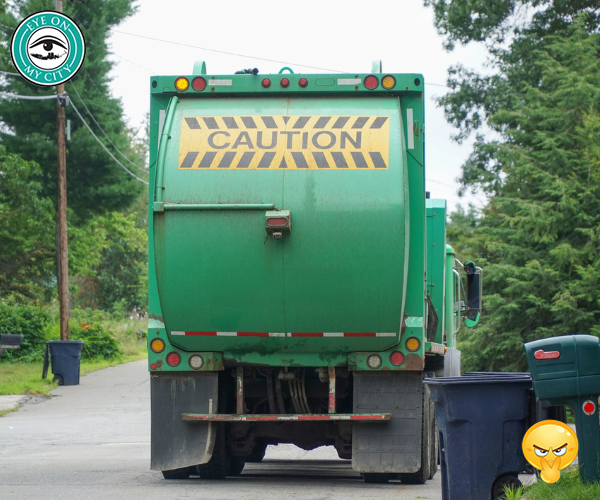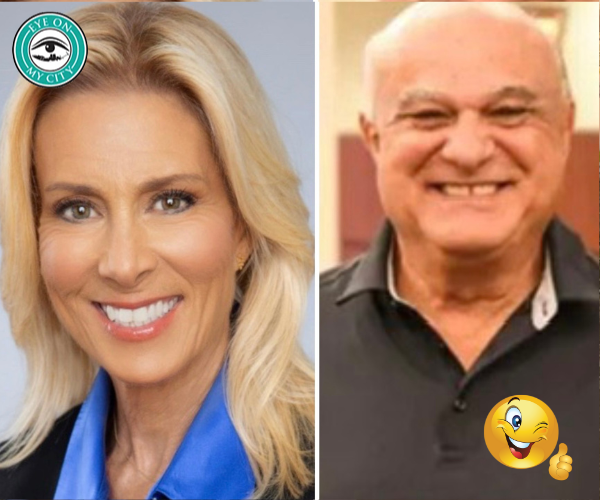Recently, the Daily Record quoted Hank Coxe, one of Jacksonville’s most well-known lawyers and a member of the Constitutional Revision Commission, as saying the commission’s role in the amendment process was flawed.
It seems that politics interfere, in his opinion.
I was not as shocked as Coxe to find that politics is involved in a political process such as amending the constitution but I think he is right to say it is flawed.
I’ve known Coxe for many years and consider him a friend, but he is about as far left as one can get. He was one of three Democrats on the 37-member commission. My reading of his comments is that he was miffed because he was unable to sell the commission on the idea of an “assault weapons” ban.
Even though I applaud the commission for not throwing that nutty idea at the voters, it probably is time to disband the commission, which exists for the sole purpose of proposing revisions to the constitution every 20 years.
Amendments already can be proposed either by the Legislature or by direct petition from the people. There is no valid reason for a redundant commission that sometimes tries to act as an auxiliary legislature, to get through proposals the Legislature rejected.
One of the best amendments in recent history was Save Our Homes, proposed by the Legislature and approved by voters in 1992, limiting property tax increases on a homestead.
One of the worst was a mischievous rewrite of the public education section in 1998, which served no other purpose than to give liberals a platform to demand more spending on the public schools — whether needed or not — and to help liberals fight school choice. It came from the revision commission.
In addition to all the other puzzles facing voters on the November ballot, there will be a dozen proposed constitutional amendments to consider.
This year’s amendments are a mixed bag.
Amendment 1:
If approved, this amendment would raise the portion of a home’s value that can be exempted from non-school property taxes. The Legislature voted to refer the exemption to the ballot in 2017, and the proposed changes would apply to the assessed value of a homestead property between $100,000 and $125,000, raising the maximum exemption to $75,000.
Those affected in Jacksonville will save on average $297 but not everyone will qualify, according to Property Appraiser Jerry Holland. It also means a $27 million less revenue for the city government.
Amendment 2:
This amendment would make permanent an existing limit on non-homestead property assessments. Such property tax assessment increases have been limited to 10 percent of the previous year’s assessed value since 2008, when another constitutional amendment capped the increases passed.
Voting against this amendment would provide the city with a $15 million windfall, but for 55,000 property owners and renters it would mean a substantial tax increase. Holland likes the idea of making the existing exemption permanent.
Amendment 3:
This is a citizen-initiated amendment that would give voters the sole right to decide whether to expand casino gambling in Florida. That authority currently rests with both the Legislature and voters.
This would take casino gambling decisions out of the hands of legislators and each county would hold a vote on whether to have casinos. Jacksonville voters have already approved it but might have to vote again depending on court rulings.
Amendment 4:
Another petition-drive amendment, heavily sponsored by the ACLU, this would restore voting rights to former felons if they have served their sentence, with the exception of those who were convicted of crimes such as murder or sex offenses. For the past seven years, the state has required that ex-felons wait after completing their sentences to apply to regain voting rights. The process can take a decade or more.
If approved, about 1.5 million people in Florida could be affected. It is estimated that half would apply, and that the net gain for the Democrat Party would be 400,000 voters.
Amendment 5:
This would require a two-thirds super-majority vote in the Legislature to impose, approve or raise state taxes and fees.
Pretty easy choice. The Democrat candidate for governor is promising big tax increases and this would make it more difficult for the Legislature to approve them if he were elected.
Those proposed by the commission are:
Amendment 6:
This amendment links three proposals that create a bill of rights for crime victims and set new criteria for judges. The bill of rights is modeled after “Marsy’s Law” that was enacted in California. The other proposals in the group would increase the mandatory retirement age for judges to 75 from 70 and also would bar judges from deferring to administrative agencies’ interpretations of a rule or statute when ruling in cases involving those laws.
Another mix of possibly good and probably bad.
Amendment 7:
This amendment would provide state college tuition for the survivors of first responders and military members killed on duty, require university trustees to agree by a two-thirds majority to raise college fees (not including tuition) and establish the state college system in the Florida Constitution.
This would protect state colleges from takeover by the university system by enshrining them in the constitution, and is sweetened with the aid for first responders’ families and protection for college students against higher fees.
Amendment 8, that related to charter schools, school board term limits and civics education, was removed from the ballot by the Supreme Court because the majority claimed its language was misleading.
Amendment 9:
This combined amendment would impose a ban on oil and gas drilling in state-owned waters along with a proposal to add vaping to the ban on smoking indoors.
These are provisions beloved by Big Environment but there is no justification for them being in the Constitution.
Amendment 10:
This also is busywork, that changes the dates of legislative sessions, puts two more bureaucracies in the constitution and calls for all constitutional officers to be elected, not appointed. A few in Dade County are appointed.
Amendment 11:
This is a proposal to remove a provision that prohibits “aliens ineligible for citizenship” from owning property, delete language approving a high-speed rail system and remove the state’s Savings Clause, which prohibits retroactively applying the amendment of a criminal statute to sentencing for a crime committed before the change.
Another mixture that takes out the silly authorization to build high-speed rail, but also removes a 1926 amendment that was questionable at the time but probably reasonable today, limiting some aliens from owning property. The provision related to sentencing is so convoluted I’m not sure what it would do, frankly.
Amendment 12:
This is a stand-alone proposal that would bar a public official from lobbying during his or her term in office and for six years following, and restrict current public officers from using their office for personal gain.
Another silly ethics law. Generally when liberals try to purify politics, it makes things worse.
Amendment 13:
Also a single proposal, it would end by 2020 commercial dog racing involving wagering. (Gamblers still could bet in another state.)
The state of Florida got into the gambling business 30 years ago. It doesn’t seem to like competition.
The problem with almost all of the commission’s proposals is that they amount to the legislative process known as “log rolling.” This is how politicians tie awful ideas with good ideas for a single vote, because they know the bad ideas could not pass on their own merit.
The general rule remains true, if you don’t completely understand what an amendment to the constitution would do, vote against it. It usually is a good idea to apply that remedy to amendments that mix good and bad provisions.
It is strange that the courts found one mixed-provision amendment unworthy but not others. But, as yet, the courts can’t prevent you from applying your own standards when voting.
There are a couple of ideas voters might find appealing, but it would not be the end of the world if none passed, which is what happened in 1978.
Patience is a virtue. If an idea is good, it probably will be enacted eventually, and there always should be a high bar for admission to the constitution.
[author] [author_image timthumb=’on’]https://eyeonjacksonville.com/wp-content/uploads/2018/04/Lloyd-Brown.jpg[/author_image] [author_info]Lloyd was born in Jacksonville. Graduated from the University of North Florida. He spent nearly 50 years of his life in the newspaper business …beginning as a copy boy and retiring as editorial page editor for Florida Times Union. He has also been published in a number of national newspapers and magazines, as well as Internet sites. Married with children. Military Vet. Retired. Man of few words but the words are researched well, deeply considered and thoughtfully written.[/author_info] [/author]






